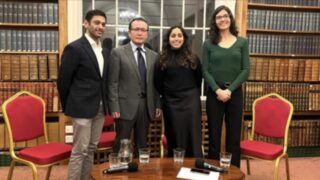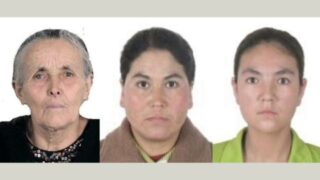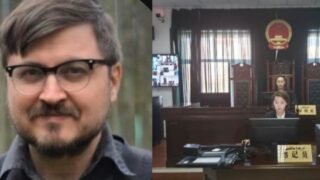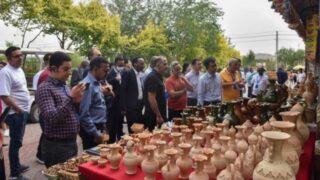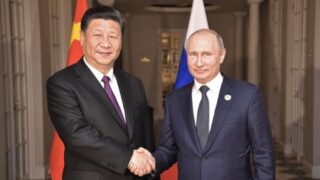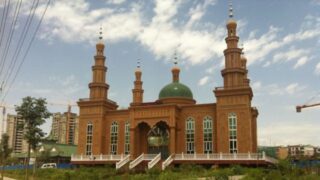CCP is intensifying efforts to expunge teachers disloyal to the Party by scrutinizing their private lives and encouraging colleagues to inform on each other.
by Li Zaili


During the Cultural Revolution, people could be labeled “ideologically problematic” for any remarks or behavior contrary to the communist dogma. Many were sentenced to death merely for misspeaking or accidentally placing Quotations from Chairman Mao in a bathroom.
The need for self-censorship is as crucial as ever in China today. In particular, in Xinjiang Uyghur Autonomous Region where one can end up in transformation through education camps just for being Muslim.
The government is stepping up its efforts to eradicate ideological oversight in the public sector. Since 2017, special measures have been implemented throughout Xinjiang to root-out “two-faced” officials and CCP members that are not truly loyal to the regime and are suspected of participating in ethnic separatism, terrorism, and religious extremism – so-called “three evil forces.”
As a result, Uyghur academics, intellectuals, and artists have suffered a major purge under the banner of eliminating “two-faced persons,” resulting in mass detentions and even death sentences. Institutions of higher education throughout Xinjiang have been comprehensively investigating into religious beliefs of teachers and staff. Some have been punished just for storing Islamic-related audio files, or because they had a copy of the Quran in their home, or taught classes in the Uyghur language.
As part of the fight against the “three evil forces,” a university in Xinjiang issued last year a document, entitled Notice on Further Deepening Special Assessment Work in the Battle Against “Two-Faced Persons” Among Officials and Teachers. The document calls for a “special military supervision and assessment team” and the school’s Party committee to carry out schoolwide “special evaluation work in the battle against ‘two-faced persons’ among officials and teachers.” Investigations are to be kept strictly confidential to avoid eliciting negative public opinion.
Standards for identifying “two-faced persons”
What criteria does CCP use to determine whether someone is “two-faced” or not? First, information is analyzed to ascertain if people have previously accessed religious venues, engaged in religious activities, or propagated religious thinking or expressed “wrong thoughts, words” and did “wrong deeds.”
Reports on opinions expressed publicly, actions and the state of mind of officials and teachers as demonstrated in their daily work, life, and studies are assessed, as is their position and attitude on major political issues, and participation in political activities. Data on whether people have read, stored or disseminated books and audiovisual materials with “content related to terrorism, violence, ethnic separatism, and religious extremism” is collected and analyzed.
Even those who “speak up and show their sword,” meaning, express firm attitudes and opinions against the “three evil forces,” are not in the clear. No one is safe from being labeled as “two-faced” despite a proven record of exposing leads and reporting on “three evil forces” and “two-faced persons” or participation in counter-terrorism and stability maintenance measures, and “home-stay” programs to indoctrinate and monitor Muslims. The authorities will continue monitoring the actions and attitudes of these teachers and officials to make sure that they are unquestionably loyal to the regime.
Even the ideological standing of teachers’ relatives is part of the assessment. The document calls to examine the records from work and interactions in social settings by the investigated person’s closest family members to determine if they have been “affected by extreme thought.” Spouses and children are examined for exhibiting “two-faced” opinions or behavior; their outlooks on “three forces,” and other “sensitive” topics are determined and analyzed.
Snitching on colleagues – basis for assessment
The document also specifies the assessment process and methods to be used during it. On top of the collection and analysis of personal information, interviews with the persons under question are to be conducted. The assessment is also based on colleagues appraising each other: popularly called “back-to-back” reporting during the Cultural Revolution, it is basically snitching on each other without providing any proof or taking responsibility for one’s words.
“Back-to-back” evaluations are also used to ascertain the ideological standing of CCP members and officials in other institutions, not only universities, to “eliminate unstable elements.” As a rule, three to four colleagues testify, i.e., snitch on him or her, and each evaluated person has to carry out “self-inspection and self-rectification” This has caused an intense feeling of unease, fear, and paranoia between co-workers, making them continuously watch their backs.
Provinces outside Xinjiang have also launched similar “self-inspection and self-rectification” campaigns targeting school teachers, Party members, and other groups of society. Several primary and middle school teachers in the northern province of Shanxi have reported that they have been required to write ideological and political “status reports” to confirm their unconditional support for the Party’s leadership.


